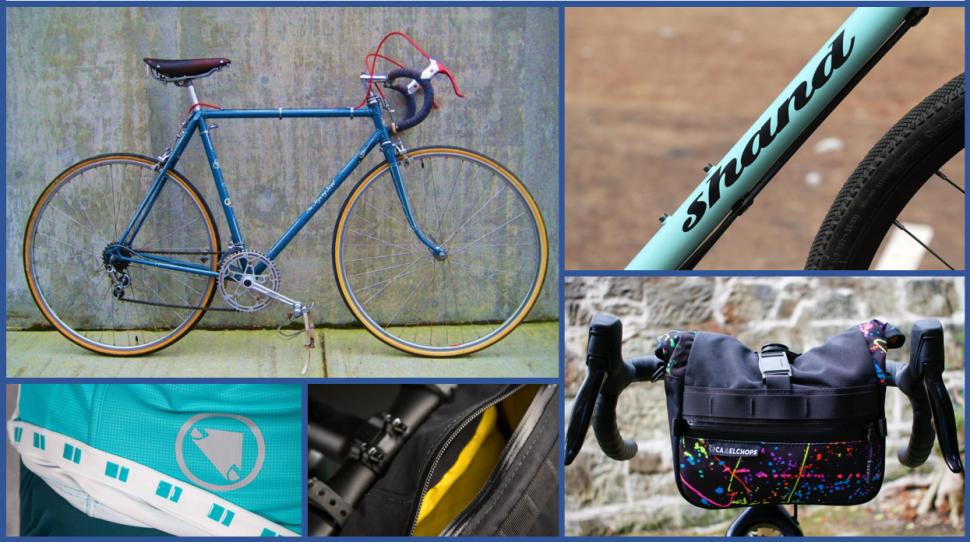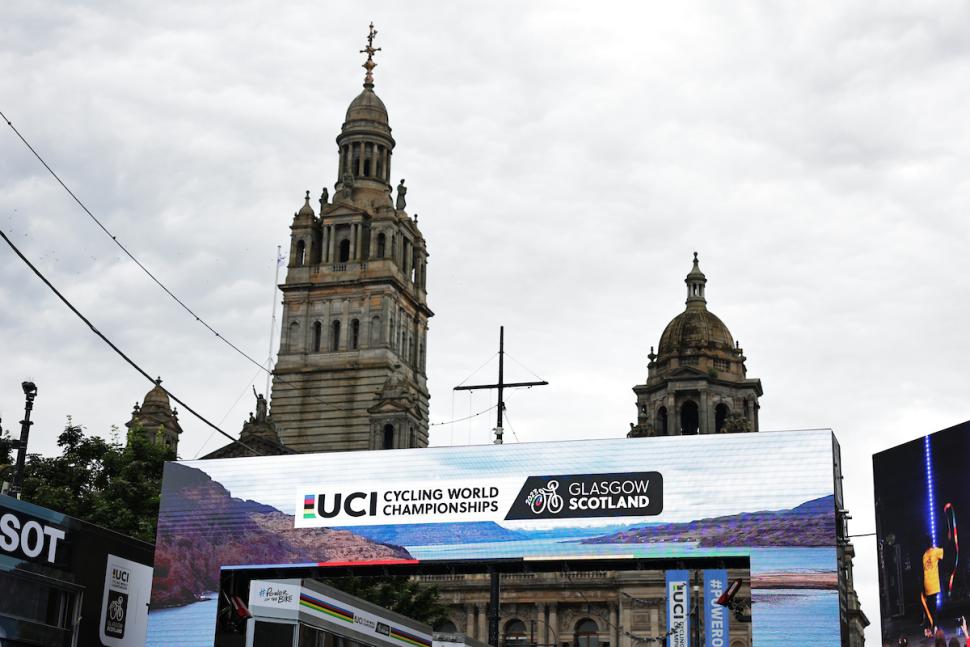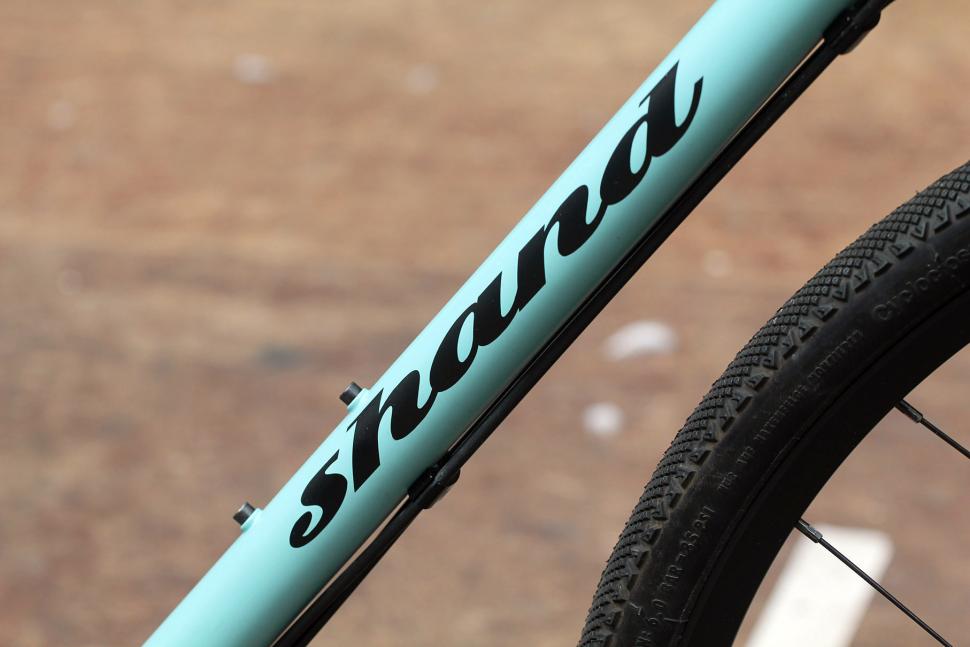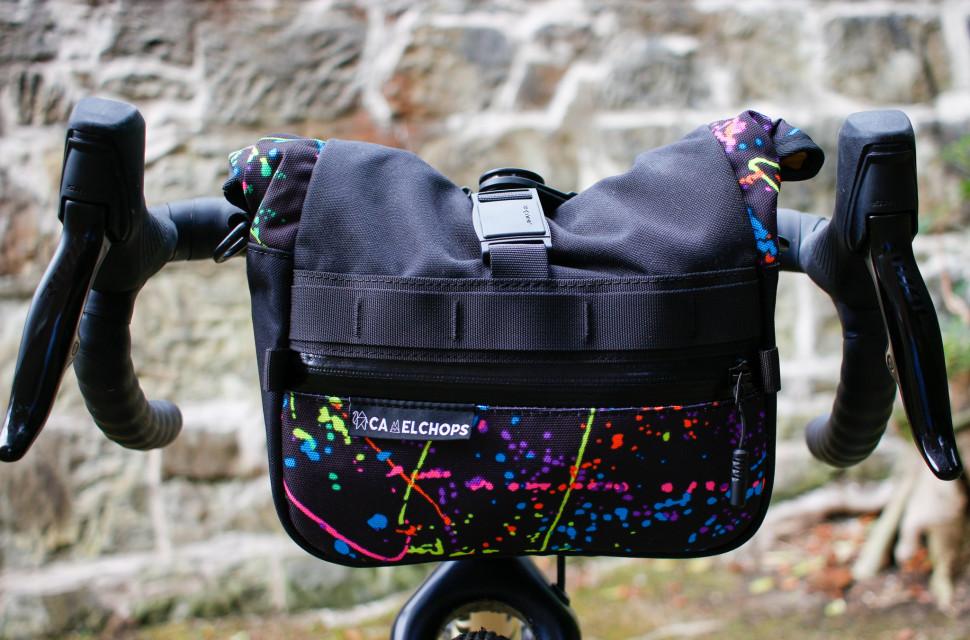- News
- Reviews
- Bikes
- Components
- Bar tape & grips
- Bottom brackets
- Brake & gear cables
- Brake & STI levers
- Brake pads & spares
- Brakes
- Cassettes & freewheels
- Chains
- Chainsets & chainrings
- Derailleurs - front
- Derailleurs - rear
- Forks
- Gear levers & shifters
- Groupsets
- Handlebars & extensions
- Headsets
- Hubs
- Inner tubes
- Pedals
- Quick releases & skewers
- Saddles
- Seatposts
- Stems
- Wheels
- Tyres
- Tubeless valves
- Accessories
- Accessories - misc
- Computer mounts
- Bags
- Bar ends
- Bike bags & cases
- Bottle cages
- Bottles
- Cameras
- Car racks
- Child seats
- Computers
- Glasses
- GPS units
- Helmets
- Lights - front
- Lights - rear
- Lights - sets
- Locks
- Mirrors
- Mudguards
- Racks
- Pumps & CO2 inflators
- Puncture kits
- Reflectives
- Smart watches
- Stands and racks
- Trailers
- Clothing
- Health, fitness and nutrition
- Tools and workshop
- Miscellaneous
- Buyers Guides
- Features
- Forum
- Recommends
- Podcast
feature
 Classic Scottish Bike Brands main image
Classic Scottish Bike Brands main imageHighland Bling: Scotland’s classic cycling brands
Scotland is widely regarded as one of the most picturesque and characterful places on earth, and justly so. It’s also a country that comes blessed with truly epic cycling challenges, offering opportunities of every possible kind for people on all types of bikes, and on every imaginable variation of terrain too.
For a land with a wee population count of a dram over 5.4 million, who are mostly settled on the urban central belt between Glasgow and Edinburgh, Scotland has a long and distinguished history when it comes to invention and innovation, including in cycling terms.
From Alexander Graham Bell’s telephone to John Logie Baird’s television and Alexander Fleming’s penicillin, and on to John Davie’s deep fried Mars Bar and Graeme Obree’s Old Faithful, Scotland has a rather varied list of great inventions – but pre-dating most of them was the first pedal driven bicycle.
It’s widely accepted that a Scottish blacksmith named Kirkpatrick Macmillan came up with the rear wheel driven pedal bicycle back in 1839, although there are a couple wobbles in the exact authenticity and origin of this tale.
(Alex Whitehead/SWpix.com)
Now, with all that rich (and sometimes contested) cycling history in mind, and as the greatest cyclists from around the world take the high road, the offroad, and indeed the wooden road to Glasgow for the sport’s biggest ever title bout, we decided to take a look at a few of Scotland’s greatest cycling brands from down the years.
The Scot
The term “Flying Scot” has been used to brand many a thing over the years, although if you happen to be of a slightly older vintage malt and are from the northern side of Hadrian’s Wall then the term will most likely bring back fuzzy steel and chromed memories of Scotland’s glory days of lightweight bike manufacturing.
And that can mean only one brand – The Scot, often known as The Flying Scot (a model name), the bikes for which were built by David Rattray & Co in Glasgow.
David and his sister Agnes opened a bike shop in in the city back in 1900, though it took over a quarter of a century, until 1928 in fact, for ‘The Scot’ branded bikes to emerge. Over the years David’s steel and wheeled artwork became the go to for discerning Scottish cyclists, and it’s estimated that Rattray produced some 13-15,000 frames that were sold the world over before they shut up shop in 1983.
Billy Connolly with the Flying Scot bike he owned in his twenties. (2019) Pic: BBC. pic.twitter.com/twFhmj4sz5
— PictureThis Scotland (@74frankfurt) July 28, 2021
The brand was arguably Scotland’s biggest ever producer of quality dropped bar bikes, and their most famous rider was none other than fellow Glaswegian Billy Connolly.
In the early eighties, as Rattray’s half a century of iconic bike building came to a close, steel bike maestro Dave Yates at M. Steel Cycles bought the “Flying Scot” brand name.
Endura
When it comes to Scottish cycling clothing manufacturing, the first name that surely comes to mind is that of Endura.
Back in 1993 Jim McFarlane co-founded Endura with Pamela Barclay in Livingston. With solid and down-to-earth beginnings, Endura was considered a budget staple with a reputation for resilience in the early days, and from day one Endura were major supporters of the sport.
> Endura to "replicate the first-ever pedal cycle"
From their early backing of local clubs and amateur teams to their first Italian-based continental road outfit and right through to the highest echelons of the sport with the likes of Movistar, Endura’s persistence and ever-increasing technical excellence took them from those humble beginnings on the northern fringes of the Pentlands to their current status as a major global brand with a £25 million annual turnover.
In 2018, the company was sold to the Pentland Group, whose other brands include household names such as Berghaus, Canterbury, Speedo, Kickers, and Mitre.
Shand Cycles
Some 10 years after Endura first stitched its first togs in Livingston, Steven Shand set up business in the same town building quality bike frames under the Shand Cycles badge. After filleting and brazing his way to niche prominence, Shand soon earned a name for excellence, albeit initially on a one-man-band scale.
In 2010 Shand partnered up with Russell Stout to expand the company, which they well and truly did, earning an even bigger repute and customer base along the way.
In 2017 Shand was acquired by the major industry Liberty House Group. While similar takeovers have often proved the killer blow for many small brands, their intentions and actions seem to have proven somewhat different with Shand and the small team continue to produce their fine rides in Livingston, which is great news for high-end British bike manufacturing.
Five Land Bikes
There’s little doubt that the Pentland Hills have been something of an inspiration for the whole Scottish cycling industry, and I guess you could call that green and grey-peppered belt between the cities of Glasgow and Edinburgh the nation’s cycling equivalent to Silicone Valley”.
Indeed, the latest example of Scottish indie bike building excellence can be found tucked away here in a converted rural barn in Balerno, just a 20-mile ride away from Edinburgh’s Royal Mile.
File Land is a top-notch custom frame builder, and they make frames almost exclusively for other high-end brands (including Mason), although a little Pentland Hills’ grouse tells us that we should look out for news on that score in the very near future. The company was founded in 2017 by Callum Fisher and Matt Stitt, and they are highly acclaimed for their steel and titanium excellence – which does include, in these modern times, both road and gravel frame building.
Bags (not bag pipes)
Over the years, Scotland has woven a rich tapestry when it comes to fabric manufacturing and tailoring, and that stretches way beyond tartan and Harris Tweed. In recent times a handful of artisan Scottish bike bag brands have even sprung up.
Brae Cycling was founded by former track sprint ace Marco Librizzi in 2021, with Brae being the Scottish word of course for hill, and they currently produce a fine, rugged, and affordable range of various bags and panniers.
Boldly going where few have gone before is the superbly named CamelChops, a small family-run business presented by Kat and Wayne since 2020, and they handmake to order some of the brightest and boldest bike bags around, which are guaranteed to cheer up any dreary ride out. Oh and, on occasion, they do also have tartan options, for those Bay City Rollers fans still lingering out there.
Rounding up our Scottish baggy trio is Straight Cut Design, which was founded by designer Ross O’Reilly in 2018 in Edinburgh. This is a small but very precise quality producer of bike bags, which are all made in Scotland and are built to last even the worst of your Highland wet weather epics, which is no mean task.
The loose link: Dunlop
Okay, so before we get the keyboard bashing, yes – we know that Dunlop as a rubber and tyre band did originate in what was to become Northern Ireland. However, it’s not only the Giant’s Causeway that links (in myth) the two Celtic nations; there is also a distinct rubber and glue bonding them.
Back in 1887 a Scottish vet named John Dunlop, who was living in Downpatrick, Co Down at the time, came up with the idea of a pneumatic tyre after his young son complained of a sore rear when riding his tricycle, and so, as any dutiful father would, he made some inflatable tyres for him. On realising that he was on to something, Dunlop took the idea further and persuaded an influential bike racer of the era to use his pneumatic tyres, rather than the solid rubber tyres of the day. And, needless to say, they took off in a big way when he started winning races on these new-fangled things.
Soon after, Dunlop went into the bicycle pneumatic tyre-making trade in partnership with the president of the Irish Cyclists Association, Harvey du Cros, to whom he sold most of the company shares.
Dunlop did produce tyres in Scotland, and subsequently all over the world under different sub-brand Dunlop companies, and went on to become one of the biggest and most respected tyre companies in the world.
However, the idea on a pneumatic tyre had earlier been patented by another enterprising Scot named Robert William Thomson in 1847 (intended for horse drawn carriages, not bikes), and due to the lack of internet at the time, neither of them knew about the other’s invention, and thus the claim to the invention and production of the first pneumatic tyres is, fittingly, shared between the two Scots.
What’s your favourite Scottish cycling brand from down the years? As always, let us know in the comments…
Latest Comments
- HLaB 55 min 41 sec ago
It's hopefully an urban myth but I heard it was designed that way on purpose, so the cyclepath captured any flooding and the busway would remain clear
- mdavidford 58 min 20 sec ago
I should imagine eating chopsticks anywhere could be potentially rather perilous.
- wtjs 59 min 22 sec ago
In practice, the expletive-deleted police here do nothing at all when the 'clearance' is demonstrably 1/3 of this '1.5 metres or less- see the Audi...
- Rendel Harris 1 hour 16 min ago
When The Badger stopped for protesters (albeit dockworkers rather than farmers) it was their stress gauges rather than his that would have been...
- mdavidford 1 hour 17 min ago
Never mind that. More importantly, since when does a bike lock qualify as a 'tool'?
- wtjs 1 hour 13 min ago
there are far more decent Audi drivers then those who give that brand it's current appalling reputation for bad driving...
- Eurodolphin 2 hours 2 min ago
Having experienced a brain injury (while my helmet only suffered a little crack) I welcome all this excellent research which looks for ways to...
- mattw 2 hours 4 min ago
Nope. Has anyone ever bought a wheel trim studded with diamonds for their car? Thought not.
- David9694 2 hours 28 min ago
Dad of William Brown Jr battles Folkestone Town Council over illuminated sign featuring late son’s picture...
- Disgusted of Tunbridge Wells 3 hours 34 min ago
All ebikes are equal... But folding ebikes are more equal than others?...









Add new comment
1 comments
The Dunlop company and factory started in Dublin. Dunlop partnered with a Dublin businessman and British , Harvey du Cros (also a Tory MP for Hastings - remember, Ireland was part of UK back then, there was no "northern Ireland").